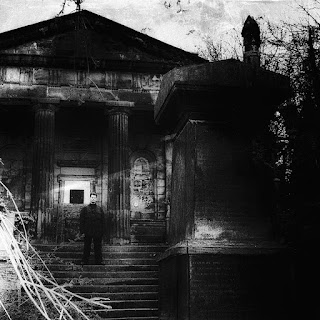One thing David Bowie’s music
taught me was to be honest in your creativity.
David’s
work, outlook and creative processes have been the best art and music teaching
I could have ever wished for. In addition to his music, his creative approach and his thinking still inspire me to this day, and will continue to do so.
I’ve
always cited Bowie as an influence on my own music, but it is perhaps less
evident, with my work being instrumental. But the atmospheres and textures of his
music on albums such as Low are often
what caught my attention, and that seamless integration between his music and
its associated visuals – the videos, his personas and album cover artwork.
One
thing that David said during a 1997 interview with Alan Yentob, was, “If you’re really turned on by what you’re
doing, there’s bound to be other people out there who like it.” This really
resonated with me, and as a self-taught musician, I’ve found it to be very
true.
I
also shamelessly admit to borrowing that phrase, as it has become a creative
motto to me. It has always been at the back of my mind whenever I publish a new
piece of artwork or music. It no longer matters if I’m not the most
accomplished player or whatever – I’m the best I can be, doing my best at this
particular moment. And quite simply, if I like it, others will too. What more encouragement could you ask for? And I’m not sure I would have ever thought that way without those
words from Bowie.
In
another interview, David once described himself as “the ultimate recycler”, and
I think that it true of any artist and creativity in general. You absorb your
surroundings and influences, then reshape and repurpose them in your own way.
A
week ago, I was still digesting Blackstar
– this exciting new album from David Bowie, with no inclination – like everyone
– of the nigh-on impossible to accept news that would be just around the
corner.
“If I never see the English Evergreens…”
Now
knowing the album’s now evident theme, the song Dollar Days now feels like the most honest and emotional song on
the album, if not most open and vulnerable song he’s ever written.
There’s
a finite beauty to Lazarus. It’s over. Written from the future, where
there’s no turning back.
“I’ll
be free…”
But
on Dollar Days we're back on the final path, and there's a real sense of angst and frustration, of the
knowledge that he had little time left, yet he still had work to do; perhaps
wanting to pull off another Ziggy
moment and surprise everybody, but not in the way he eventually would.
“I’m dying to push their backs against the grain and fool them all again
and again…. I’m trying to.”
Through
those lyrics alone, you can sense his undying creativity was driving him
forwards, pushing him on to keep going, working and creating.
Blackstar’s closing track I Can’t Give Everything Away, also has a sad finality
to it. It is as if he’s saying, “you can’t have everything, but here’s one last
lot”. If Dollar Days is denial, then in some ways, I Can’t Give
Everything Away is a resigned acceptance.
So
in one sense, the whole album makes me think of the stages/cycle of grief –
that so many fans around the world are now experiencing:
Denial > Anger > Bargaining > Depression > Acceptance
It
does feel like the loss of a friend or close family member. Yet, I didn’t know
the man and had never met him, beyond standing a few meters away during the two
times I saw him perform live (see my previous blog entry about that!).
But
to those of us who took David’s music to that extra, deeper level and gleamed
so much from it, it is unsurprising that we feel such a very personal loss. Not
only knowing that David won’t be around any more, but also that internal sense of loss, attached to our
own memories and all our personal experiences of his music that shaped our lives.
But
Blackstar is an incredible album as a
work of music and creativity alone. While in many ways it embodies his musical
legacy, to my ears, it follows a similar thinking to the kind of more experimental
albums that he put out in the 1990s – The
Buddha of Suburbia, 1.Outside and Earthling. All
three of those albums sounded ahead of their time at the time, and still sound
incredibly current today. They included similar jazz elements that would go on
to form the backbone of the music on Blackstar,
and sit comfortably alongside it. It’s a great shame that much of the music
press and critics didn’t have the brain capacity to understand or appreciate
those albums at the time.
Its
is worth noting, that despite being a similarly adventurous album, Blackstar was already headed for the
number one spot before Bowie left us. So it pleases me to know,
or at least hope, that David was aware of this, seeing his final work already embraced so enthusiastically.
On Blackstar he sings "Somebody else took his place...", yet we know that his particular boots will never be filled. David
Bowie was always ahead of the game, musically, artistically and visually, and
he stunned the world in so many ways right to the end.
“Ain’t
that just like me.”






